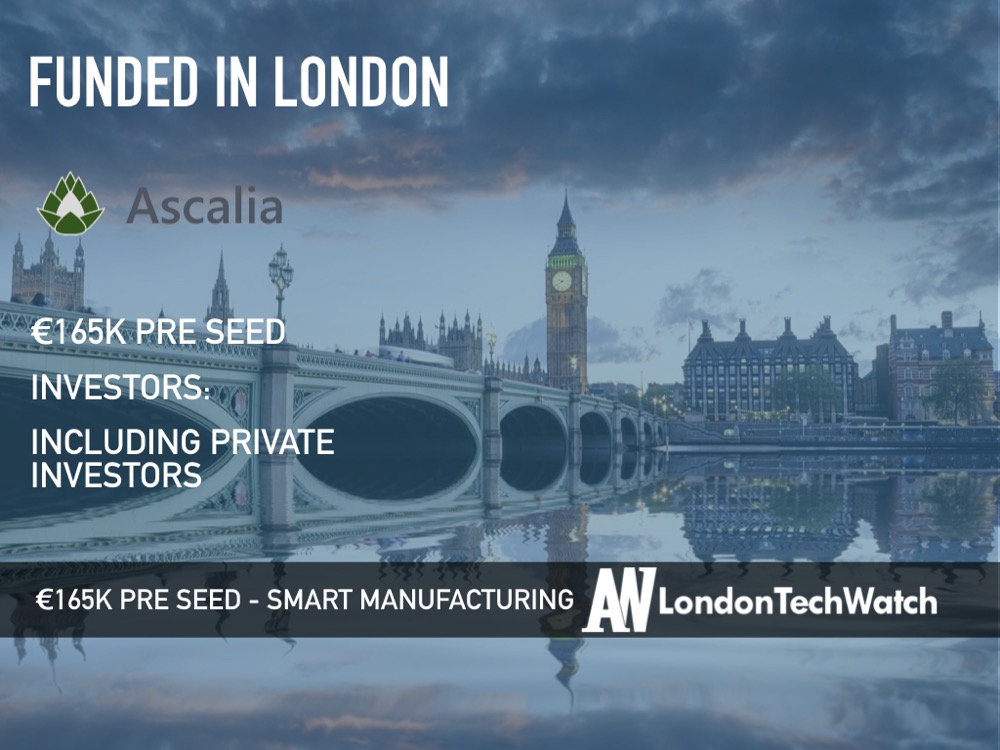Industry 4.0, or the Fourth Industrial Revolution, is focused on smart manufacturing systems supported by technologies including AI, machine learning, and IoT, and Ascalia is the all-in-one platform that is making this a reality. Through IoT and Industrial IoT, Ascalia provides factories with non-invasive solutions to optimize manufacturing processes. This means that Ascalia’s platform can provide real-time monitoring that includes air-quality, energy consumption, and identifying faulty equipment.
London TechWatch sat down with Marin Bek to learn more about Ascalia’s first fundraising round, after its initial grant from the Climate-KIC Acceleration Programme, and the company’s future growth plans.
Who were your investors and how much did you raise?
It’s a pre-seed of €165K raised from two private investors and a company.
Tell us about the product or service that Ascalia offers.
Ascalia is a smart manufacturing system that allows industry to improve their efficiency without spending money on new machinery and downtime. We connect all parts of a factory into our IoT cloud, create a digital twin and help analyse efficiency, identify bottlenecks and optimize the manufacturing process. We also integrate machine learning solutions for quality inspection where applicable as part of the process.
What inspired you to start Ascalia?
In our previous IT company (big data, analytics) we got increasing requests for problem-solving from industrial companies.
How is Ascalia different?
It is non-invasive, we can onboard a factory without stopping production and without expensive equipment upgrades.
What market are you targeting and how big is it?
We are targeting western Europe markets at the moment, where smart manufacturing is estimated at €40B.
Who do you consider to be your main competitors?
Systems such as tend.ai, Siemens Mindsphere.
What’s your business model?
It’s your typical B2B licensing model where factories pay a license for using Ascalia.
What was the funding process like?
3-6 months long, a lot of back and forth and reaching out to many people before identifying good investors.
What are the biggest challenges that you faced while raising capital?
Leveling out the paperwork between all shareholders.
What factors about your business led your investors to write the check?
We are in a growing market with a proven track record.
What are the milestones you plan to achieve in the next six months?
Increase sales/revenue to 60 factories on board and further improve the product offering.
What advice can you offer companies in London that do not have a fresh
injection of capital in the bank?
Go out there, talk to people and talk to possible prospects. Find real problems and offer real, measurable value. Money will follow.
Go out there, talk to people and talk to possible prospects. Find real problems and offer real, measurable value. Money will follow.
Where do you see the company going now over the near term?
We plan to open offices in/around Munich and increase sales activities in UK and Germany. The plan is to grow sales in other geographies and solidify the product offering.
What is your favorite restaurant in London?
Kama sushi at Sticky mango.




